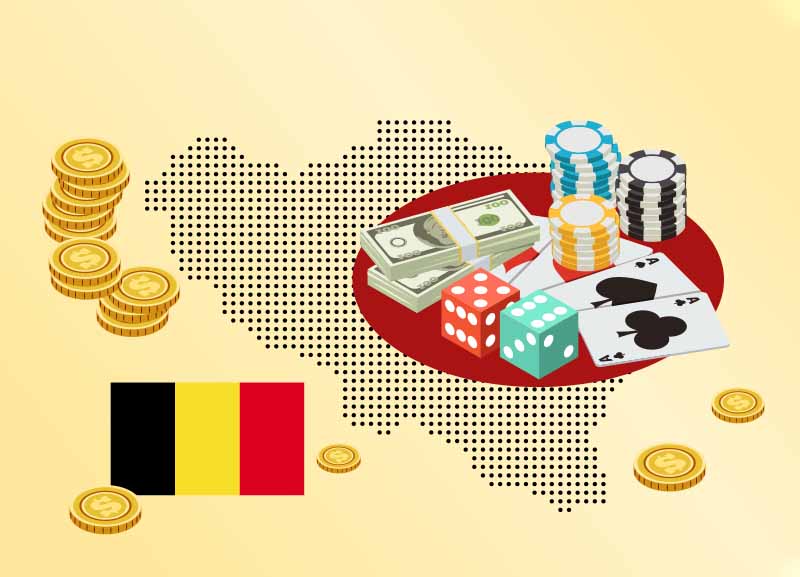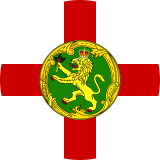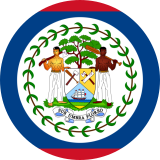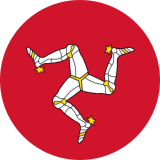Western Europe and Gambling Laws: Rich Rules, Big Rewards
The iGaming niche has many jurisdictions where operators' dreams meet government paperwork. Western Europe is particularly convoluted in these terms. The rules are tight, and the taxes can sting. At the same time, the region still brings in nearly half of the global iGaming revenue. That means private operators can legally run online casinos and sportsbooks as long as they follow the rules and pay the fees.

Ready to find out where your next licence might land you? Smart Money will gladly help launch your platform in a sensible way. Buy all the necessary software and employ proficient legal assistance at the sphere's leading aggregator.
How Extensive is the Western European Gambling Market?
In 2024, the region is expected to rake in over $31 billion from iGaming alone. And that number is predicted to grow by around 4.25% every year until 2029. That is solid, steady growth.
The primary reason it is so extensive is that this part of the world has been in the game for a long time. Countries here are rich, active, and well-regulated. In fact, many global gambling laws are based on the European model. The rules are detailed, the systems are well-tested, and most operators know what to expect.
At the same time, Western European laws are not perfect. Black market gambling still exists, and regulators still get scorned for being too strict. While the ecosystem is strong, one must be prepared for tough sailing.
United Kingdom
The UK is considered one of the biggest gambling markets in the world. Between April 2022 and March 2023, almost £15.1 billion was generated, £6.5 billion of which came from online platforms. The sphere also employs around 100,000 people, which shows just how deep gambling runs in the UK economy.
Culturally, nearly half of adults place bets every month. Sports wagering takes the lead, especially football, while horse racing still holds strong. Brits like bookmaking and enjoy all formats from high-street bookies to online slots.
Everything is tightly regulated by the commission under the 2005 Gambling Act. Any operator who wants in needs a licence. The fee depends on how much you make, and can be from a few thousand to over £500,000 a year for huge platforms. A 21% tax on GGY is added on top of that.
Germany
Until 2021, online gaming was basically off-limits. Then came the Interstate Treaty, which finally allowed virtual casinos and sportsbooks. At the same time, a solid list of restrictions made many operators reconsider their entrance.
Even the local betting association (DSWV) says the system is way too tight. For example, Germany has more people than the UK, but in 2023, it made less than half the gambling revenue (€4.8 billion compared to €12 billion).
There is a €1 max bet on slots, a €1,000 monthly deposit cap, a forced cooling-off period. Ads cannot feature athletes. Even eSports betting is banned. So, instead of keeping people safe, the ecosystem drives them straight to unlicensed sites.
Austria
The country maintains a highly regulated gambling scene. Everything operates under the Law on Games of Chance (GSpG), which is overseen by the Ministry of Finance. While the country is projected to reach $683 million in online gambling revenue in 2024, the reality is that the entire system still centres around a state-run monopoly.
While the tight control is in effect, small-stakes games of chance, skill-based activities, and specific betting options are managed separately by Austria’s Federal States. Therefore, depending on your location, the rules may vary slightly.
Right now, Österreichische Lotterien GmbH manages nearly all lottery-related activities. Meanwhile, Casinos Austria AG operates a dozen gaming halls throughout the country. Foreign platforms, however, are prohibited from advertising or directly targeting Austrians. It remains a well-guarded market with limited access points.
Switzerland
The jurisdiction takes gambling particularly seriously. Thanks to consistent growth, the market is projected to reach $1.76 billion by 2029. In 2023, land-based casinos generated approximately $752 million, a slight decline from the prior year, whereas online casino revenue surged by 14.3% to CHF 342 million.
The current system started in 2019 with the introduction of the Gambling Act. There are two categories of licences. Type B imposes more restrictions, such as a maximum bet of 25 francs on slots and potential additional canton-level taxes. In contrast, Type A licence holders enjoy greater flexibility. The acquisition of these permits is challenging. A total limit of 23 across the country is imposed heavily, each valid for 20 years.
A portion of gambling taxes is allocated directly to social programs, such as pensions and disability insurance. In the past twenty years, casinos have contributed over $9 billion in taxes, with the majority benefiting the community. It is a prime example of giving back while profiting.
Ireland
Residents have a deep-rooted passion for betting, particularly in sports and horse racing. This aspect of the bookmaking world is thriving. However, the situation elsewhere is somewhat disorganised. Certain niches, like lotteries and sportsbooks, are clearly regulated. Unfortunately, land-based casinos do not benefit from the same level of organisation.
While commercial ground casinos are technically prohibited, savvy individuals discovered a loophole with "private members’ clubs.” Essentially, these operate like small venues with free entry. The legal framework for this dates back to 1956 and 1931, which is surprising given the vast changes in the world since those years.
In 2022, Ireland introduced a new law known as the Gambling Regulation Bill. This also established a new regulator with a distinctly Irish name, Údarás Rialála Cearrbhachais na hÉireann. Unfortunately, as of mid-2024, it remains inactive. Consequently, many operators continue to rely on licences from other countries. Local approvals are obtained as a supplement. However, with Ireland’s attractive low corporate tax rate, this could change quickly once the law is implemented.
Netherlands
The Dutch have long established their gambling regulations, particularly for land-based games. The Kansspelautoriteit (Netherlands Gaming Authority) was created in 2012 to oversee activities from betting to bingo. However, the regulation of the digital sphere became significant only in April 2021 with the introduction of the Remote Gambling Act (Koa). This legislation officially permitted online operators and implemented specific rules. By now, the market is growing, but it comes with conditions.
In 2023, new rules came into force:
- Licensing is now official, and online gambling is legal. Operators need a permit under the Koa law.
- User protection is tight since income checks are required at €700/month (25+) and €300/month (18–24).
- Tax might be going up from 30.5% to 37.8%.
The projected online revenue for 2024 is $1.19 billion. But with taxes possibly rising, operators are nervous about users drifting to unlicensed sites.
Belgium

The state’s gambling market is promising but challenging to enter. The local system is governed by the 1999 Gaming Act, which underwent a digital update in 2011 to address the prevalence of online betting. However, you should not anticipate an open-door approach. Belgium has a closed registration system with strict restrictions on the number of operators allowed to enter.
You must have a ground licence to obtain an online one. This requirement leaves most newcomers, especially those from outside Belgium, in a tough spot. While it is technically possible to collaborate with an existing ground operator, all nine online casino licences are currently occupied. However, in betting, some permits are still available with a bit more flexibility.
Still, the entrance process might be worth the effort. Online gambling revenue is expected to hit $914.8 million in 2024 and climb past $1.1 billion by 2029. Plus, the 11% tax rate on GGR is relatively low. Just keep in mind that from June 2024, the minimum engagement age rose to 21, and Belgium’s already tough ad bans are about to get even stricter.
Luxembourg
This jurisdiction might be small, but it generates significantly more gambling revenue per person than expected. It actually ranks third in GGR per capita in the EU. This sounds promising, but a new online entertainment business here is virtually impossible at the moment.
Ground gambling falls under the 1977 Gaming Law, yet Casino 2000 in Mondorf effectively operates independently. The online sector is even more restricted, as since 2009, only the government-regulated non-profit organisations have been authorised to provide gambling services on the web.
Entertainment is kept under tight control and handled in a "safe" manner. Still, there is a bit of a grey area. While you cannot get a local iGaming licence, Luxembourg tends to look the other way when EU-registered platforms serve its residents. This is not exactly a green light, but it is not a total red one either.
France
The country maintains strict regulations on gambling. This sector is overseen by the Autorité nationale des jeux (ANJ), which replaced ARJEL in 2020. Although the rules are clear and organised, they can be somewhat burdensome, particularly for online operators.
If you consider launching a casino site in France, this is impossible. The state is reserved for land-based venues only. The exception is online poker, which is perceived as a fair game.
Meanwhile, two state-backed giants continue to hold monopolies:
- FDJ for lotteries and retail sports wagering;
- PMU for horse racing betting offline.
Licences are available for digital bookmakers and racing facilities (only for approved events, though). The real critical consideration is the tax rate. Online sports betting has a combined 54.9% on GGR. Horse racing is taxed at around 13.8% on wagers.
Still, France is a vast market. €13.4 billion in GGR in 2023, and nearly half the population engaged in gambling. If you can handle the pressure, the entrance is worth it.
Andorra
This small territory, nestled in the Pyrenees and focused on attracting tourists throughout the year, has considered gambling for some time. In 2018, the government initiated the process for land-based casino licences. However, none have been granted to date.
Online gambling exists in a legal void. There are no local regulations in place, and it is not a topic of conversation. Consequently, residents and tourists can freely access foreign platforms without any restrictions.
Spain
One of Europe’s largest iGaming centres boasted a GGR of €350.7 million in Q1 2024, an increase of over 15% compared to last year. However, the gambling system was entirely decentralised after the sphere was decriminalised in 1977, with the new constitution implemented in 1978. The regulatory authority was transferred to the country’s 17 autonomous regions. Consequently, the rules differ based on your location.
For online gambling, things work differently. If you want to run a nationwide operation, you need a licence from the Dirección General de Ordenación del Juego (DGOJ). However, if you are only going regional or land-based, you will need to deal with local authorities. The legal base for this setup is Law 13/2011, and each gaming category you offer requires its own permit. Expect fees at around €45,000, with €10,000 added per game type.
In 2018, the government allowed operators tax relief with a 20% reduction, or just 10% for those based in Ceuta or Melilla. However, in 2020, regulations were tightened concerning advertisements. Promotions, celebrity endorsements, and most gambling commercials on TV or radio were prohibited, along with any mention of financial rewards or lifestyle improvements. In a surprising turn, Jdigital contested these regulations, which has led to the removal of many restrictions, although the ban on sports sponsorships remains in place.
Portugal

This destination has ground and digital gambling fully regulated. Since the launch of the licensing system in 2016, the country has been trying to shake off the aftereffects of the Great Recession, and high taxes have not helped. Many punters still head to unlicensed sites, which offer better odds and fewer restrictions.
The Serviço de Regulação e Inspeção de Jogos (SRIJ) monitors all activities within a legal framework established by Decree-Law No. 422/89 and later revised by Decree-Law No. 66/2015. The Santa Casa da Misericórdia de Lisboa (SCML) holds a monopoly on lotteries and parimutuel sports wagering. At the same time, any other entity eager to provide casino games, fixed-odds betting, bingo, or horse racing must obtain a licence.
Registration fees start at €12,000 (or just €2,000 for bingo), with another €18,000 to get technical systems approved. Taxes are steep. Casino sites pay 25% of GGR, and betting operators are taxed 8% of turnover. This model has made it tough for legal managers to stay competitive.
Italy
The government here approaches gambling with great seriousness. Local online regulations rank among the most comprehensive globally. Throughout the last two decades, the country has established an intricate framework that addresses operations and advertising. The Agenzia delle Dogane e dei Monopoli (ADM) oversees everything with a strict yet fair approach and prioritises user protection above all.
Licences can only be grabbed through a government tender. The current price tag is €2.5 million, non-renewable. With that comes access to the largest gambling market in the EU. Operators can offer pretty much everything except lotteries, which remain under monopoly control. Taxes run between 20% and 25% of GGR.
In January 2024, the government gave the green light to the Reorganisation Decree, which aimed to improve safety. The new setup includes a €7 million authorisation fee and an annual 0.2% charge on net revenue. Even with the high cost of entry, the prize is enormous. Italy’s online market hit $3.21 billion in 2024. This is solid for a country that loves its games.
Malta
This jurisdiction is iconic when it comes to online gambling. Malta was the first EU nation to establish a comprehensive framework for the iGaming sector, thanks to its Remote Gaming Regulations introduced in 2004. This initial advantage, combined with favourable rules for operators and low taxation, positioned the destination as the preferred place for licensing in Europe.
Everything is now organised under the 2018 Gaming Act, with additional regulations and updates from the Malta Gaming Authority (MGA), unlike certain countries that issue tenders sporadically. The commission offers a straightforward registration process. The annual base cost is €25,000, along with a monthly fee determined by revenue, capped at €600,000 each year.
Operators pay just 5% of the revenue generated from punters, and the system is designed to avoid double taxation. No wonder so many iGaming giants call Malta home.
The Main Things about Western European Gambling
The region has earned its reputation as the centrepiece of the global gaming scene. Deeply established giants like the UK and ambitious reformers like Ireland bring something unique to investors. The region is packed with potential, whether you are looking for big numbers or solid regulation.
Key takeaways about the region:
- UK, Malta, and Italy are still the top choices for operators who want strong markets and well-oiled regulatory systems (though costs can be high).
- Germany, France, and Portugal offer potential but come with red tape, heavy taxes, and rules that could send players looking for offshore alternatives.
- Ireland, Luxembourg, and Andorra are still in development mode, but they are promising destinations to plan the gambling project.
- Spain and the Netherlands stand out with solid licensing systems and growing user bases, but strict advertising and affordability rules should be expected.
- Belgium and Austria take a more cautious approach, with capped licences and monopolies that limit access to new or foreign operators.
- Switzerland keeps things tight and well-monitored for stability and extended activity, which is perfect for the long game.
- France has high taxes but a huge market, while Portugal’s expensive system has many operators sitting on the fence.
Western Europe presents a blend of opportunities and challenges that require a thoughtful approach to navigate. If you are prepared to enter these markets or need assistance in identifying the best one to meet your objectives, Smart Money is here to help.
Buy all the necessary software for your existing projects. Contact our proficient client support for information on building a turnkey or White Label platform from scratch.
Check the information used to contact us carefully. It is necessary for your safety.
Fraudsters can use contacts that look like ours to scam customers. Therefore, we ask you to enter only the addresses that are indicated on our official website.
Be careful! Our team is not responsible for the activities of persons using similar contact details.


 Alderney
Alderney  Anjouan
Anjouan  Australia
Australia  Austria
Austria  Belgium
Belgium  Belize
Belize  Costa Rica
Costa Rica  Curacao
Curacao  Dominican Republic
Dominican Republic  Estonia
Estonia  Georgia
Georgia  Gibraltar
Gibraltar  Isle of Man
Isle of Man  Italy
Italy  Kahnawake
Kahnawake  Malta
Malta  Ukraine
Ukraine 











